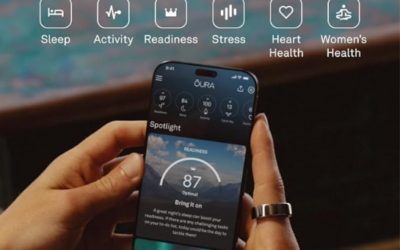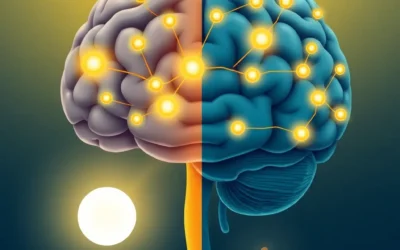Attention-Deficit/Hyperactivity Disorder (ADHD) is a common neurodevelopmental condition that affects an individual's ability to focus, control impulsive behaviors, and manage their time and tasks effectively. While ADHD can present significant challenges, there are a variety of strategies and techniques that can help individuals with ADHD improve their daily functioning and achieve their goals.
Understanding ADHD
ADHD is characterized by three main symptom types: inattention, hyperactivity, and impulsivity. Individuals with ADHD may struggle to maintain focus, easily become distracted, have difficulty organizing their thoughts and tasks, and exhibit restless or impulsive behaviors. [1][4][5]
ADHD is often diagnosed in childhood, but it can persist into adulthood. In fact, it's estimated that around 4.2% of U.S. adults have ADHD. [5] While ADHD is a lifelong condition, the good news is that there are effective treatments and coping strategies that can help manage the symptoms and improve overall functioning.
Developing Organizational Strategies
One of the biggest challenges for individuals with ADHD is maintaining organization and staying on top of tasks and responsibilities. However, there are several strategies that can help:
Create Structure and Routines
Establishing consistent routines and schedules can provide a sense of structure and predictability, which can be very helpful for individuals with ADHD. This might include setting aside specific times for tasks like paying bills, doing laundry, or completing homework. [1]
Using a calendar, whether digital or physical, can also be a valuable tool for staying organized. Setting reminders and alerts can help ensure that important deadlines and appointments are not forgotten. [1]
Declutter and Designate Spaces
Reducing clutter and designating specific spaces for different tasks or items can minimize distractions and make it easier to find what you need. For example, having a designated spot for keys, bills, and other frequently used items can prevent them from getting lost. [1]
Break Down Tasks
Large, overwhelming tasks can be daunting for individuals with ADHD. Breaking them down into smaller, more manageable steps can make them feel more achievable. This can help you stay focused and avoid becoming easily distracted or frustrated. [1]
Improving Focus and Attention
Maintaining focus and attention can be a significant challenge for those with ADHD. Here are some strategies that can help:
Minimize Distractions
Identifying and minimizing potential distractions, such as turning off notifications on your devices or finding a quiet workspace, can help you stay focused on the task at hand. [1][3]
Use Productivity Tools
There are various apps and tools available that can help individuals with ADHD stay on track. For example, using a "pomodoro" timer to break work into focused intervals can be effective. [1]
Practice Mindfulness and Meditation
Engaging in mindfulness practices, such as meditation, can help improve focus, reduce impulsivity, and better regulate emotions. Start with short sessions and gradually increase the duration as you become more comfortable. [1]
Managing Hyperactivity and Impulsivity
Hyperactive and impulsive behaviors can be disruptive and challenging to manage. Here are some strategies that can help:
Incorporate Physical Activity
Regular physical activity can help burn off excess energy and improve focus. Encourage individuals with ADHD to engage in activities like sports, exercise, or even just taking regular breaks to move around. [3]
Use Fidget Tools
Providing fidget toys or other sensory tools can help individuals with ADHD channel their restless energy in a productive way, allowing them to focus better on the task at hand. [1]
Practice Impulse Control Techniques
Techniques like deep breathing, counting to 10, or using a "stop and think" strategy can help individuals with ADHD pause before reacting impulsively. [1]
Seeking Support and Accommodations
Navigating ADHD can be challenging, but there are resources and support systems available:
Engage with a Mental Health Professional
Working with a mental health professional, such as a therapist or ADHD coach, can provide valuable guidance and support in developing personalized strategies for managing ADHD symptoms. [2]
Explore Medication Options
In many cases, a combination of behavioral therapy and medication can be the most effective treatment approach for ADHD. Speak with a healthcare provider to determine if medication may be appropriate. [5]
Advocate for Accommodations
Individuals with ADHD may be entitled to certain accommodations in the workplace, school, or other settings to help them succeed. This could include things like extended deadlines, quiet work spaces, or the use of assistive technology. [3][4]
Conclusion
ADHD can present significant challenges, but with the right strategies and support, individuals with ADHD can learn to manage their symptoms and thrive. By developing organizational skills, improving focus and attention, managing hyperactivity and impulsivity, and seeking professional help when needed, individuals with ADHD can overcome the obstacles they face and achieve their goals. [1][2][3][4][5]
Citations:
[1] https://www.helpguide.org/articles/add-adhd/managing-adult-adhd-attention-deficit-disorder.htm
[2] https://chadd.org/attention-article/how-adhd-sometimes-improves/
[3] https://kidshealth.org/en/teens/adhd-tips.html
[4] https://www.nimh.nih.gov/health/publications/attention-deficit-hyperactivity-disorder-in-children-and-teens-what-you-need-to-know
[5] https://my.clevelandclinic.org/health/diseases/4784-attention-deficithyperactivity-disorder-adhd





















